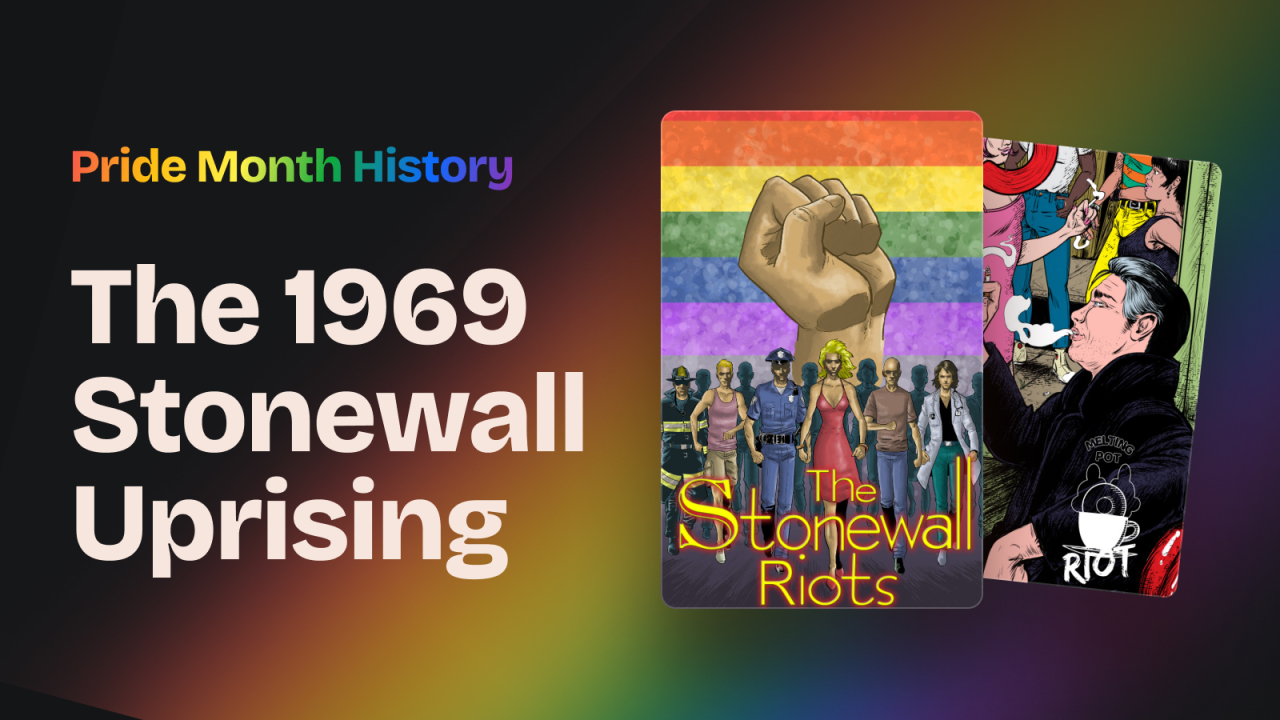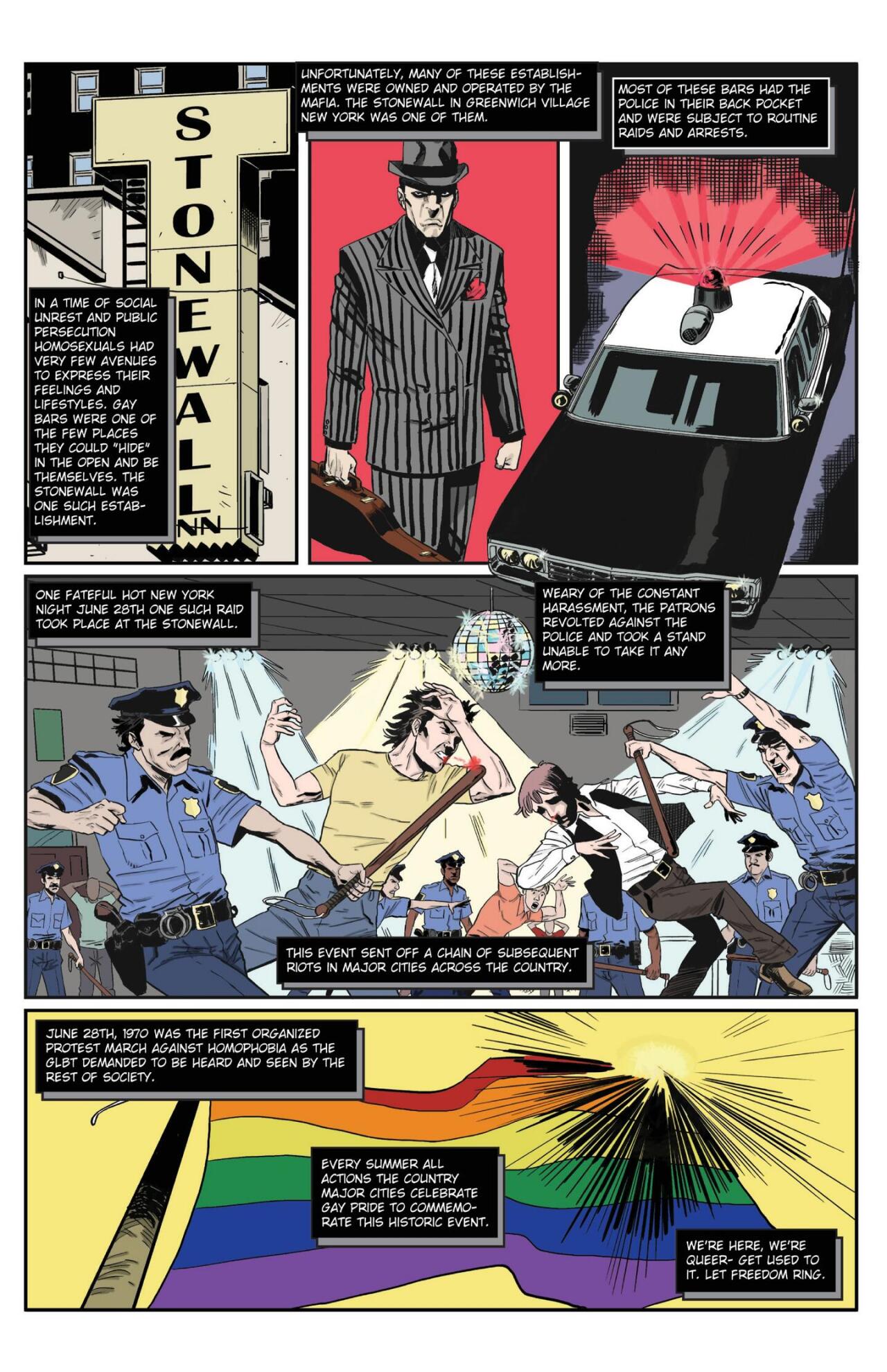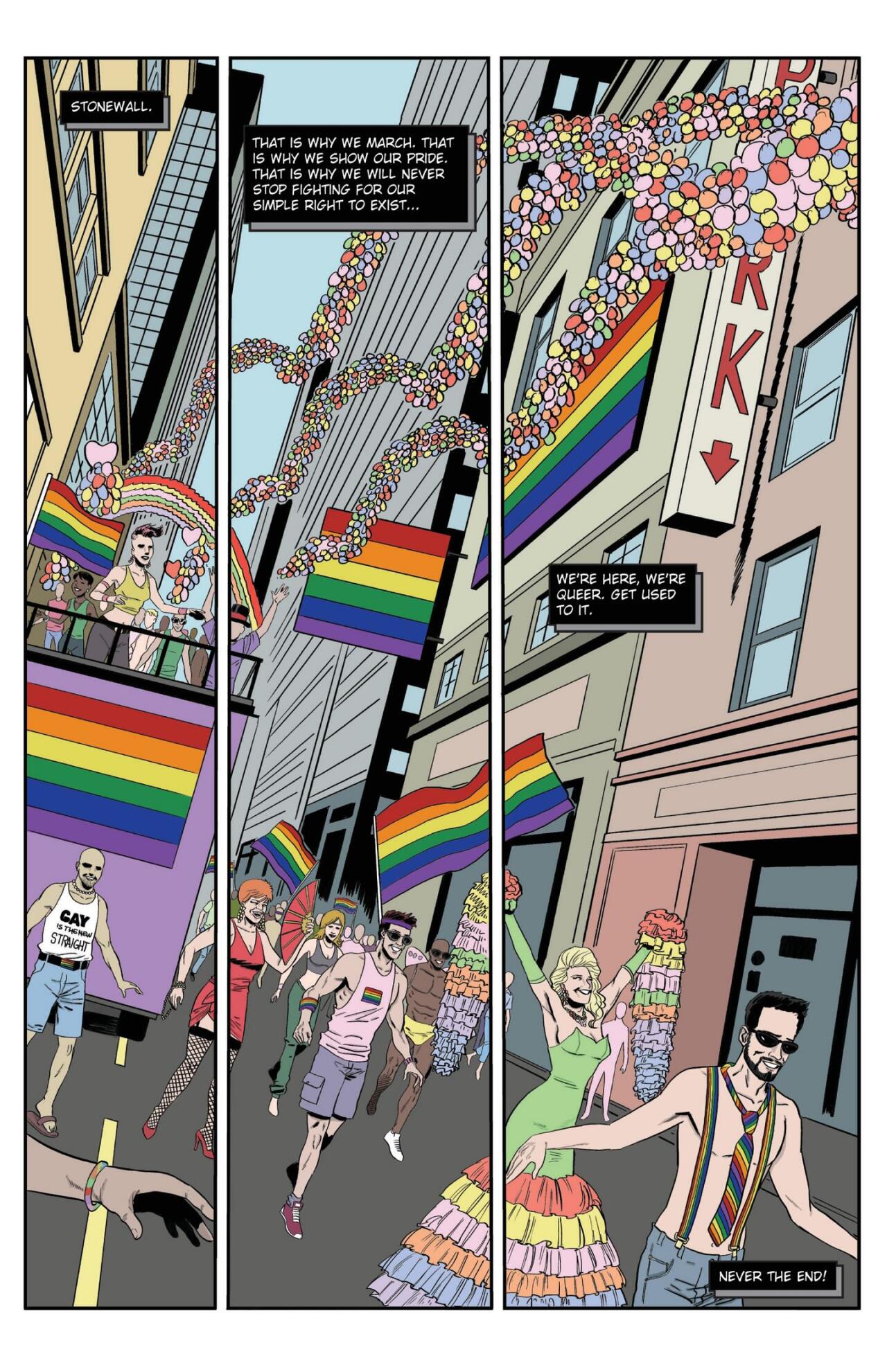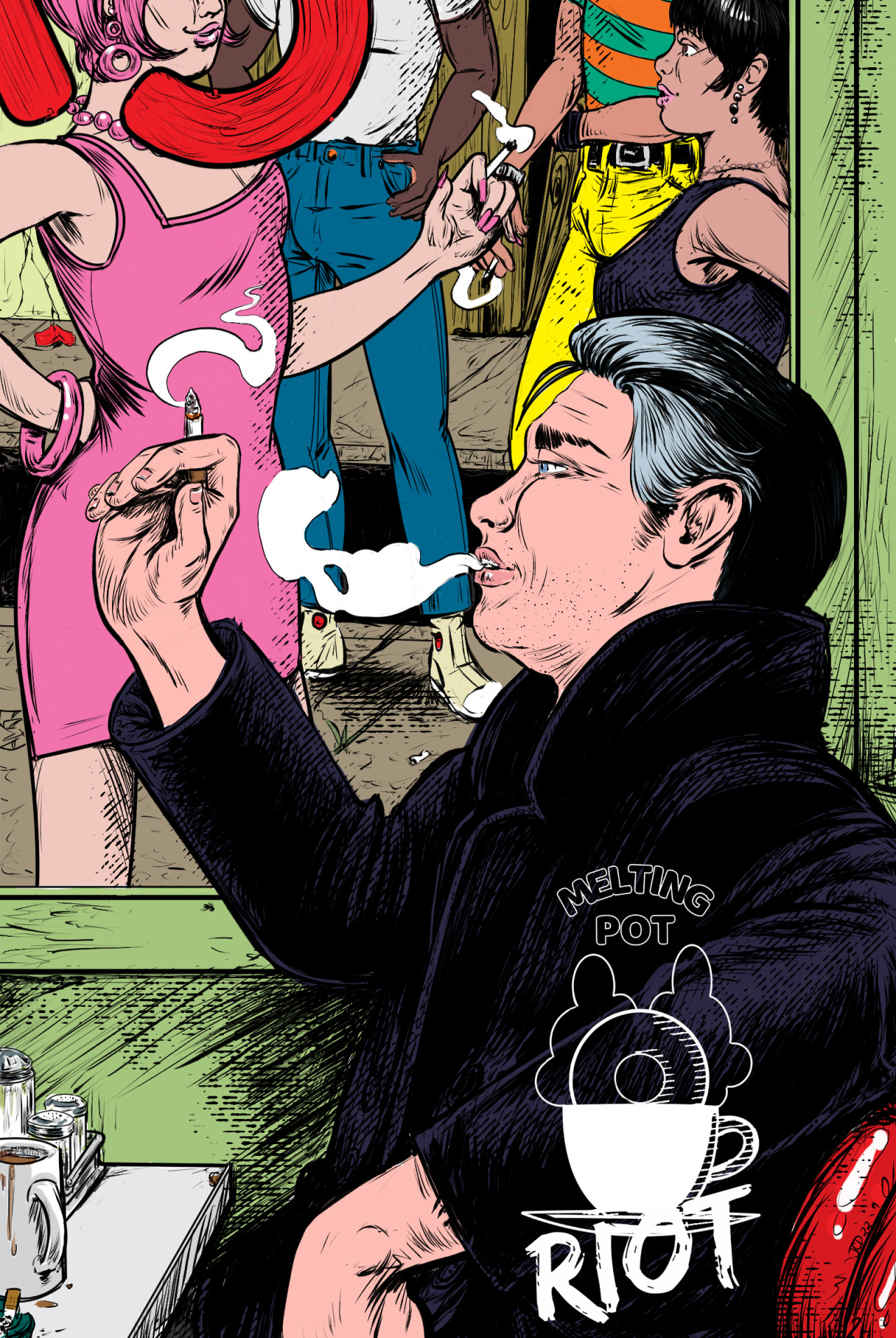What are the origins of Pride Month and what is its impact on the comic industry? This Pride Month 2024, we'll be sitting down with creators and sharing more about the history of queer creators in comics and manga.
For this first article, we'll cover one of the most famous incidents leading to the foundation of Pride Month, the Stonewall Uprising, also known as the Stonewall Riots. In addition to that, we'll be featuring two comics, The Stonewall Riots by TidalWave Productions and The Melting Pot Riot by Team Diamant Comics.
Before Stonewall, there were numerous uprisings against police and state brutality, harassment, and entrapment of LGBTQ+ communities in the U.S. These earlier events and their participants have not been as widely recognized but are equally essential to understanding U.S. LGBTQ+ histories. Stonewall, while a significant milestone, is part of a broader continuum of uprisings including:
- Pepper Hill Club Raid, Baltimore, Maryland, 1955
- Hazel's (Hazel's Inn), Sharp Park, California, 1956
- Coopers Do-Nut Raid, Los Angeles, California, 1959
- Black Nite Brawl, Milwaukee, Wisconsin, 1961
- Compton's Cafeteria Raid, San Francisco, California, 1966
- Black Cat Raid, Los Angeles, California, 1967
Stonewall veterans prefer terms like "uprising" or "rebellion" over "riots," which was initially used by police to justify their use of force. This terminology reflects the perspective of those involved, emphasizing resistance rather than chaos. The Stonewall Veterans' Association explicitly states that the rebellion spanned five non-consecutive nights and should not be labeled as riots.
Events leading up to Stonewall are covered within the pages of The Stonewall Riots by TidalWave Productions, including the persecution and "archaic means" of trying to change those who identified as homosexual. At the time, homosexuality was still illegal in many states, including New York, where Stonewall is located.
The Stonewall Uprising itself began on June 28, 1969, marking a series of confrontations started by police raids between that lasted over a period of time. Although not the first instance of police raiding a gay bar or LGBTQ+ individuals resisting, these events significantly transformed the conversation around LGBTQ+ activism in the United States. The media coverage and the annual Pride traditions that followed cemented Stonewall's place in history, but it was the result of years of prior activism.
It is crucial to acknowledge that, beyond arresting LGBTQ+ individuals, police inflicted significant violence on those they detained. First-hand accounts detail how many survivors of police raids required hospitalization or medical care for their injuries. Tragically, an uncounted number of LGBTQ+ people have died as a result of these violent raids on gay spaces. Notably, police violence and bar raids continued even after the events at Stonewall.
The first Pride march in New York City took place on June 28, 1970, marking the one-year anniversary of the Stonewall Uprising. Estimates suggest that between 3,000 and 5,000 people marched from the Stonewall Inn to Central Park during this inaugural event, then called "Christopher Street Liberation Day." The official chant was, "Say it loud, gay is proud," and today's NYC Pride marchers number in the millions. Since 1970, LGBTQ+ individuals have continued to gather each June to march with pride and advocate for equal rights.
In 2016, President Barack Obama designated the Stonewall Inn, Christopher Park, and the surrounding area as a national monument. This recognition was given in honor of the site's significant contribution to gay rights. The designation underscores the historical importance of the Stonewall Uprising and its impact on the LGBTQ+ movement.
Alongside the changing of society in light of the gay rights activism, queer comics began to grow in popularity, partly due to the parallel loosening of the restrictions by the Comics Code. Creators were now more free to explore different themes in their work that were still seen as impossible in the mainstream. One of the more landmark comics was an anthology by Trina Robbins, a straight woman mentioned earlier in our Women's History Month series, Wimmen's Comix in the first issue. "Sandy Comes out" was a first-of-its-kind comic about a lesbian that wasn't derogatory towards gays nor was it erotic.
During the 1970s, more queer comics began to appear, primarily as episodic gag-a-day formats, however, there was no stopping them even with the AIDS crisis in the 1980s. As photocopiers, and eventually the internet, became more freely available, helping creators share their stories with even more people. The 1980s all through the 2000s saw a tremendous growth in the number of queer comics by queer creators, for queer people.
With webcomics and online reading becoming more popular, queer stories have been able to increase their reach. We even have comic cons and publishers dedicated to uplifting and promoting queer voices, both in the indie and mainstream comics. The events of Stonewall though have not been forgotten, and many queer creators and individuals still struggle with discrimination. Being able to create comics to allow for proper representation is one of many beacons of hope.
Creator team Team Diamant Comics has multiple queer comics here on GlobalComix, notably American Prince and The Melting Pot Riot. The latter is declared as being inspired by two of the pre-stonewall protests, a testament to what queer folk and creators have had to endure to be seen as equals. It features an older trans-woman, the one of the last survivors of the protests sharing her story to an audience at a Pride event. Sharing stories of the past so that they cannot repeat themselves is critical.
We will be continuing to share more queer comics, movements, and notable creators of then and now throughout Pride Month. As a non-binary creator myself, and member of the GlobalComix Community team, I want to ensure that we lift the voices of the queer community that exist with the publishers and independent creators of our platform.
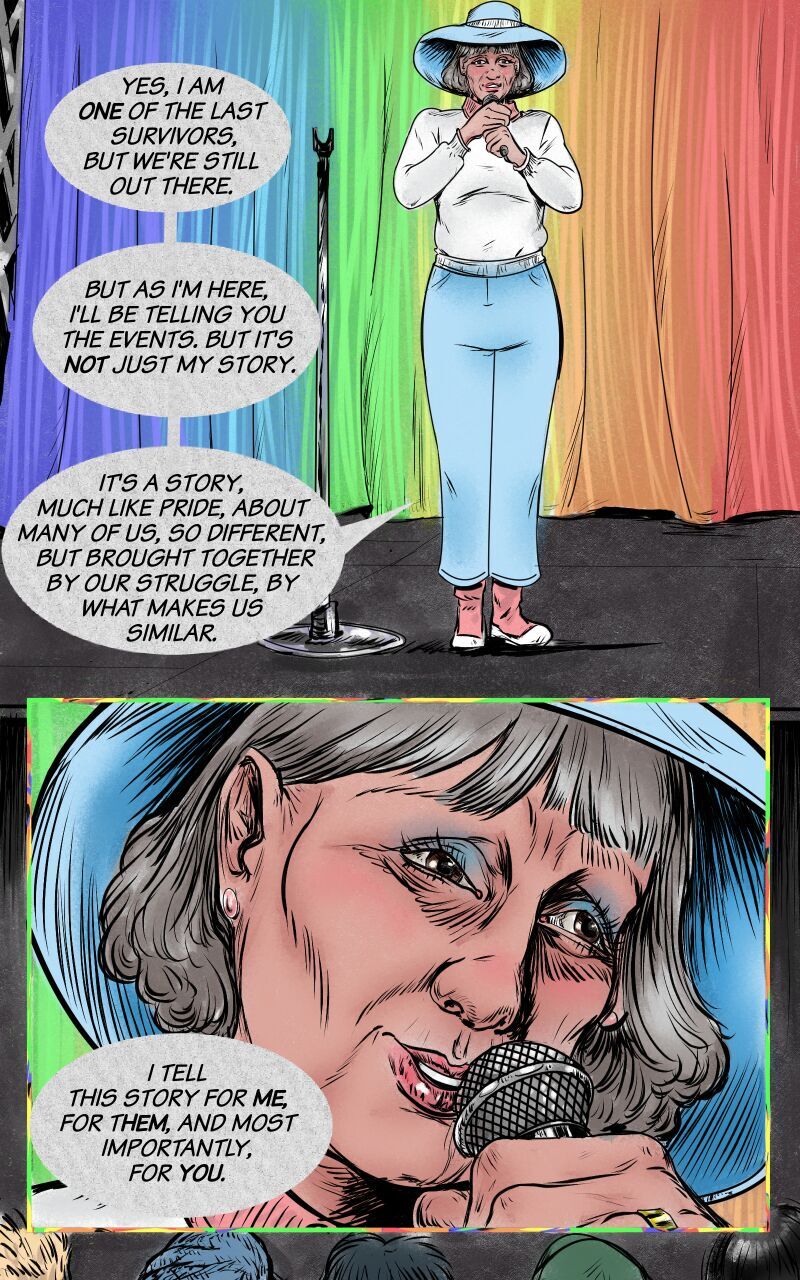
If you'd like to read and support LGBTQ+ comics of creators today and of the past, please check them out here.
If you'd like to read the comics featured in today's article, you can find The Stonewall Riots and The Melting Pot Riot on GlobalComix.
Please check these sources for today's information as well as to learn more about Stonewall and queer comic history:
-
1969: The Stonewall Uprising from the Library of Congress website
-
Stonewall Riots from the History Channel
- Beyond Bechdel: A Brief History of Queer Comics from BookRiot
-
Stonewall Inn: Through the Years from PBS: American Experience
See you again soon, and Happy Pride Month 2024 from all of us here at GlobalComix.
